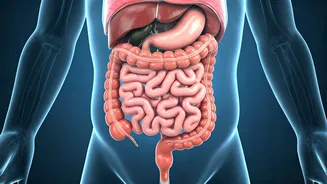Recognizing Constipation
Constipation in children manifests through various signs, each indicating a potential problem with their digestive system. One of the primary indicators
is the infrequent passage of stools. A child might be considered constipated if they have fewer than three bowel movements per week, depending on their age and individual patterns. The consistency of the stool is another key factor. Hard, dry stools are a hallmark of constipation and indicate the slow movement of waste through the colon, allowing for excessive water absorption. Straining during bowel movements is also a significant sign, as it can indicate difficulty in passing stools, which can be particularly distressing for young children. Furthermore, a child may exhibit abdominal pain or discomfort, which may range from mild cramping to more intense episodes. Finally, behavioral changes, such as irritability or a loss of appetite, can be associated with the discomfort caused by constipation, signalling an underlying digestive issue.
Dietary Adjustments
Dietary modifications are often the first line of defense against constipation. Increasing the intake of fiber-rich foods is crucial as fiber adds bulk to stools, making them easier to pass. This includes incorporating whole grains, fruits like prunes, pears, and apples, and vegetables such as broccoli and beans into your child’s diet. Adequate fluid intake is equally important. Water helps to soften the stools, and avoid dehydration, which can worsen constipation. Encourage your child to drink water throughout the day. If your child is not getting enough fluids, consider offering diluted fruit juices or electrolyte solutions. Limiting the consumption of constipating foods, such as processed snacks, fast foods, and dairy products, can also be beneficial. Pay close attention to how your child responds to these foods and make adjustments accordingly.
Establishing Routine
Establishing a regular bathroom routine can significantly improve bowel habits. Encourage your child to sit on the toilet for a few minutes at the same time each day, ideally after meals, when the gastrocolic reflex is most active, promoting bowel movements. Make the experience comfortable and stress-free by providing a supportive environment. Use a footstool if your child’s feet don’t reach the floor to assist with proper positioning. Positive reinforcement is key, so praise your child for their efforts rather than focusing on whether they actually have a bowel movement. Avoid pressure or punishment, which can create anxiety and worsen constipation. If your child is toilet training, consider taking extra steps during the training period to monitor the frequency and consistency of the stools to identify any irregularities.
Physical Activity Benefits
Regular physical activity plays a crucial role in preventing and alleviating constipation. Exercise helps stimulate the muscles in the digestive tract, encouraging movement and promoting regular bowel function. Encourage your child to engage in at least 60 minutes of moderate-intensity exercise most days of the week, which can include activities like running, jumping, swimming, or playing sports. For younger children, incorporate play sessions and active games that promote movement. If your child is used to a sedentary lifestyle, start with short bursts of activity and gradually increase the duration and intensity as tolerated. Encourage movement throughout the day, such as taking the stairs instead of the elevator or going for a walk after meals. These habits can improve gut motility.
When to Seek Help
While lifestyle and dietary changes can often resolve constipation, there are times when medical intervention is necessary. If your child's constipation is severe or persistent, consult a pediatrician. Warning signs include blood in the stool, significant abdominal pain, vomiting, or fever. The doctor might recommend stool softeners or laxatives. These medications should only be used under medical supervision, as they can sometimes lead to side effects or dependency. The doctor may also perform tests to rule out any underlying medical conditions. Chronic constipation can sometimes be a sign of conditions like Hirschsprung's disease or other structural issues. Regular follow-up appointments with the doctor can help monitor your child's progress and ensure that the chosen treatment plan is effective.















